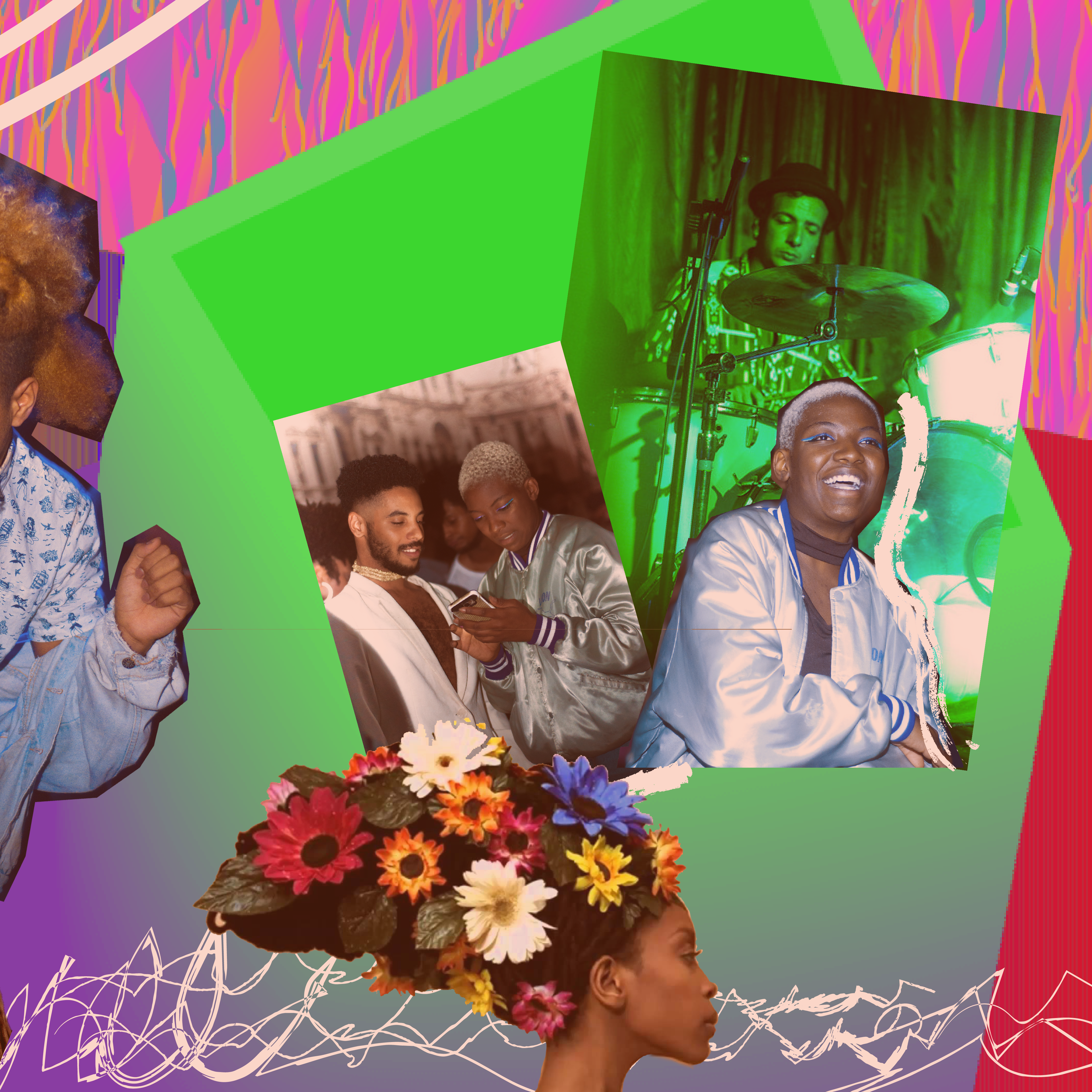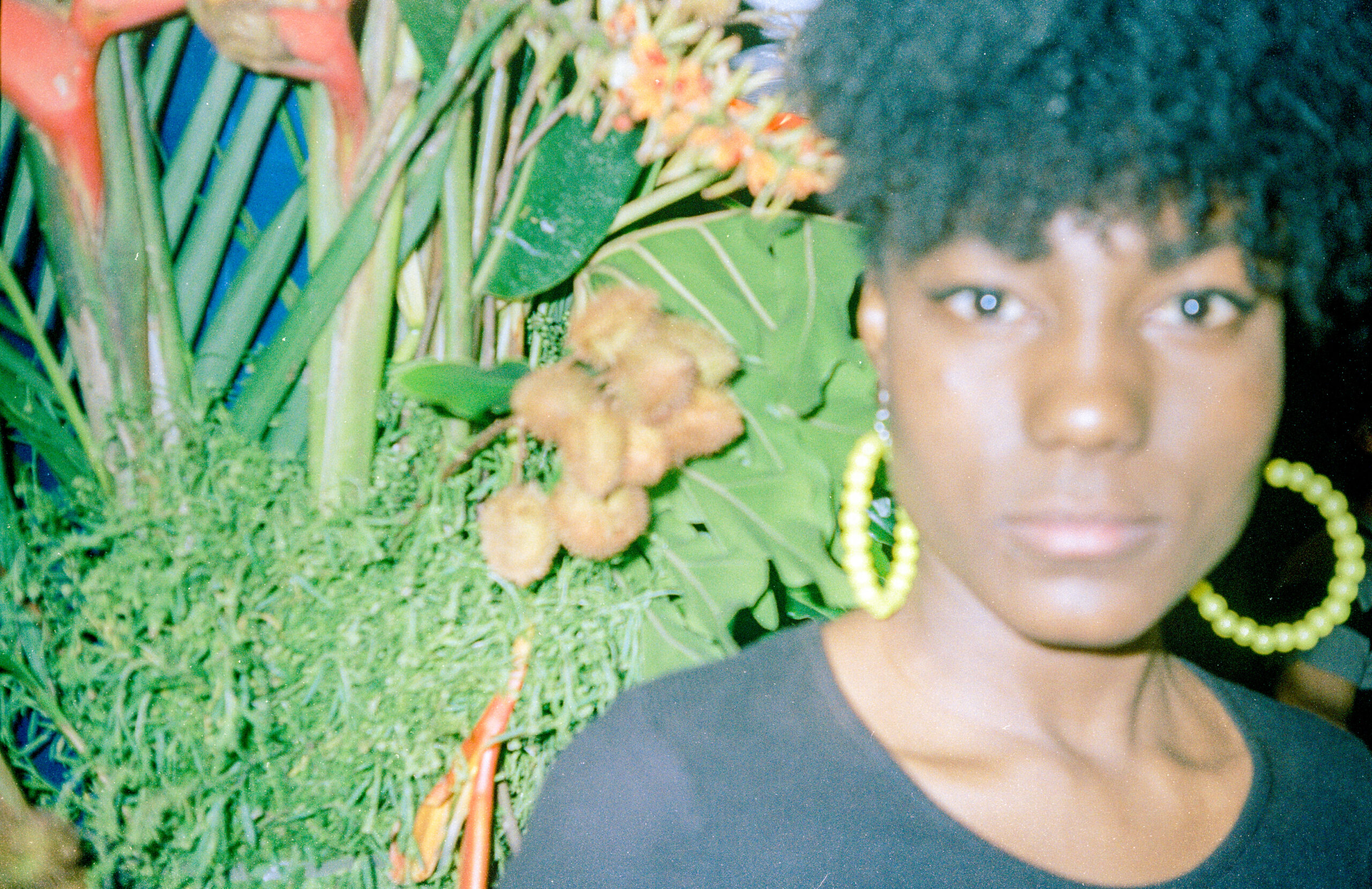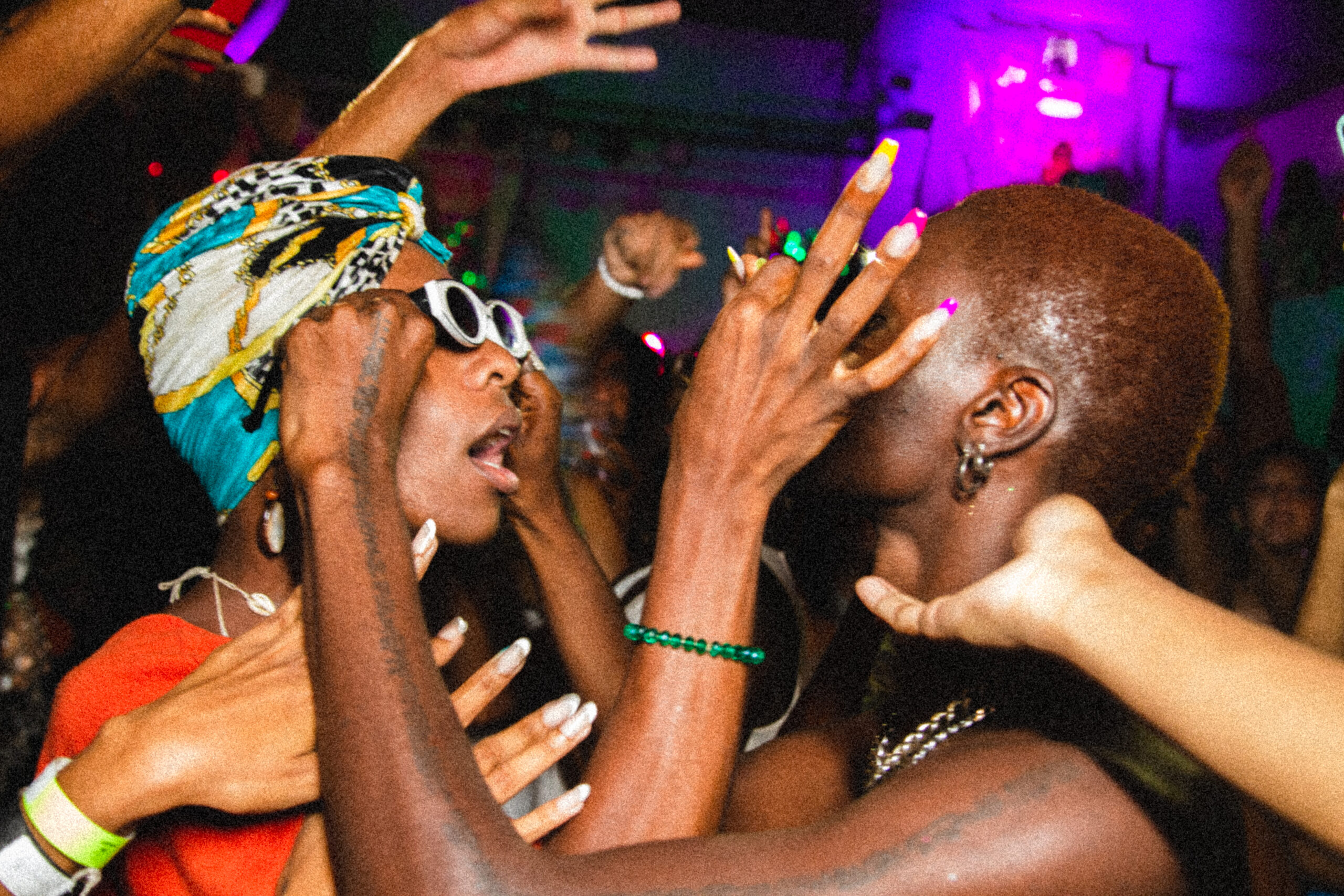

This is our latest article in a series created in partnership with the Behner Stiefel Center for Brazilian Studies at San Diego State University, to produce articles for the Digital Brazil Project on water issues and the LGBTQIAP+ population in Rio’s favelas and in the Baixada Fluminense for RioOnWatch.
Discover the work developed by the Mariwô collective, a group of Black artists from Brazil’s original ‘favela,’ Morro da Providência who are shaking up the cultural scene in Rio de Janeiro, exalting Afro-Brazilian heritage.
“No Leaf, No Orixá”
This is a maxim in the Candomblé terreiros [places of worship]. Leaves fuel life, translate history, and give movement to the body in dance and rituals. They highlight the grandeur of Afro-Brazilian religious spaces.
The Mariwô, an oil palm leaf, has a masculine reference for being a plant of the orixá Ogum. On doors and windows, the frayed Mariwô is used in Candomblé houses for a specific mission: so no harm will come. The Mariwô expels negative energies and protects the sons and daughters of the orixá.

And this is how the Mariwô Collective works: a Rio movement of cultural occupations that brings together music, art, and dance, creating spaces of reframing and experimentation through Afro-diasporic culture. A multicultural experimentation is built, where bridges are created between past, present, and Afrofuture.
Mariwô was launched in July 2017 at the Estudantina Musical Cultural Center in Centro (downtown Rio) with the cultural occupation Brecha no Espaço (Breach in the Space), which brought together 400 people and featured a show by the Afro Jazz group, the participation of Jeza da Pedra, a presentation by Aisha Mbikila and LeidExu, and music by DJs BBWJU, BByGirlCami, and DJ Garota. There was also an artistic intervention by Raphael Cruz and Raíne Funmilayo.
With diverse artistic contributions, the collective brings together names from Brazil and Latin America’s cultural scenes, like Ventura Profana, TAYHANA, Sodomita, Marta Supernova, Candé, Mc Caten, Bloco Afro Os Negões, and Luedji Luna. Among these are visual artists, singers, and DJs.
Who Makes the Wheels Turn?
Five people make the party happen in this terreiro: Alex Gabriel and Caique Cerqueira are the founders of the collective and responsible for the artistic direction and production; Daniel Santos is the resident DJ who undertakes curation and musical and artistic production of the occupations; Williane Jacob takes care of the visual elements and establishing accessibility and the central role of trans people in projects; and Luma Nascimento handles the collective’s connections with sponsors.
“The impact this has for me is at the moment of the encounter. When you see yourself with other artists, like-minded people who see each other as references, with one being familiar with the art of another. This is why our platform asserts itself as creating this diffusion among Black potencies, always with the curation focused on dissident, peripheral, Black and LGBTQIAP+ bodies.” — Caique Cerqueira
The collective—like Ogum’s plant—filters the negative energies of Brazil’s structurally racist society and transcends that into new possibilities, into art, through the power of Black artists. Like in the terreiros, Mariwô also puts on a great party to welcome and empower their own. Even with little or no funding from public agencies, the collective carries out the challenging work of creating a festive space with an aesthetic that brings elements of nature and ancestral essence to an urban context. “Mariwô safeguards the energy of the party,” so that everything goes right and so everyone can celebrate the manifestation of their work, in community, as a network.

The narrative thread that drives the Mariwô party is the celebration of the unity and plurality of Black and queer people’s possible existences. It makes visible the influence of bodies that live decolonial trajectories in the production of music, making communication happen. In its musical aesthetic, what it presents as the party’s brand is to mix Gqom, a musical rhythm produced in Durban, South Africa, with Brazilian Funk, connecting Afrobeat with Afoxé and reverberating House.
Ver essa foto no Instagram
The breach has opened up transcendental carnival ball
Music: shonda D+ beat @evehive Party production: @viralata.dog
Afrofuture Under Construction
In 2023, the Mariwô Collective will launch its educational process, creating an immersion school in music and techniques developed for performing as a DJ at night. Free DJ workshops will be offered to young people from Complexo da Maré, with the goal of also going to Providência. This project will be backed by the City of Rio’s Special Secretariat for Youth. The collective’s idea is to empower Black bodies and generate income through the development of their productions.
“The idea is to be able to take this project to reach more regions of the city, like the North and West Zones—precisely where we think about filling this gap that exists in the education of favela youth!” — Caique Cerqueira
About the author: Cleyton Santanna holds degrees in journalism and screenwriting from Federal Rural University of Rio de Janeiro (UFRRJ) and the CriaAtivo Film School. He uses his YouTube channel to address oddities, ancestry, and Afro-Brazilian culture. In 2017, he produced two documentaries: “Entre Negros” (Between Blacks) and “Tudo Vai Ficar Bem” (Everything is Gonna Be OK), and was recognized as a screenwriter in 2018 by the Creative Economy Network for the short “Vandinho.” He is currently a communicator for the Museum of Tomorrow and hosts the Influência Negra podcast.
